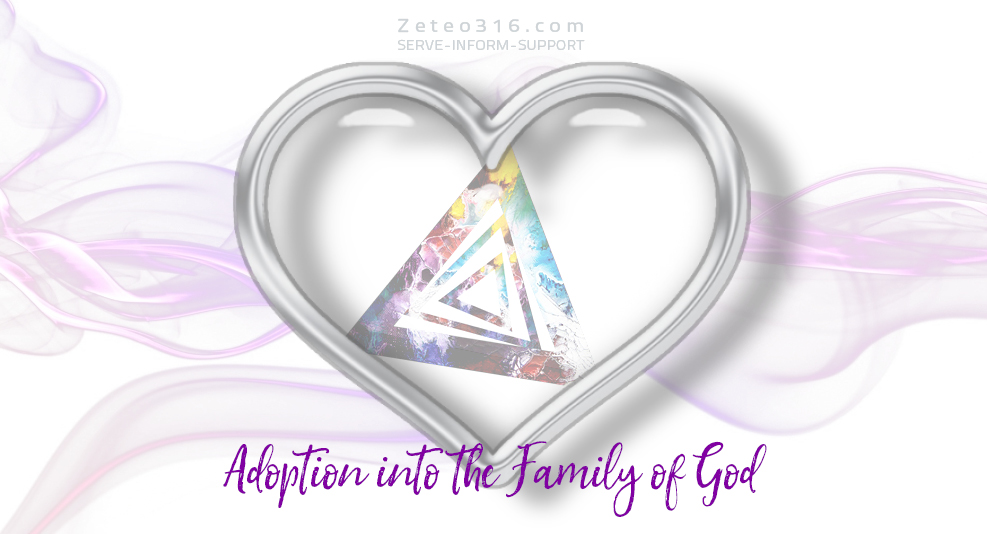
The other day the topic of our adoption into the family of God came to my attention from several sources. One came via a sermon by Ian Hamilton, in which he cited J. I. Packer’s book Knowing God. Hamilton regarded chapter 19, Sons of God, as one of his favorites. Some time later I was reading Mike Reeves’ book Delighting in the Trinity. He also cited J. I. Packer’s book along the same lines of thought.
Packer wrote:
If you want to judge how well a person understands Christianity, find out how much he makes of the thought of being God’s child, and having God as his Father. If this is not the thought that prompts and controls his worship and prayer and his whole outlook on life, it means he does not understand Christianity at all. ~ Knowing God (p 224)
Reeves’ book Delighting in the Trinity expands on the eternal love that the Persons of the Triune God have with one another. He notes that since our Triune God is three persons (unlike the solitary Allah); this means He is a loving God. This is because God expresses this love – between Father, Son and Holy Spirit – throughout eternity – even before creation.
Packer compares Justification with Adoption. First of all, here’s what Ligonier Ministries says of Justification:
Justification is an act of God. It does not describe the way that God inwardly renews and changes a person. It is, rather, a legal declaration in which God pardons the sinner of all his sins and accepts and accounts the sinner as righteous in His sight. God declares the sinner righteous at the very moment that the sinner puts his trust in Jesus Christ (Rom. 3:21-26, 5:16; 2 Cor. 5:21).
That said, Packer writes:
Our first point of adoption is that it is the highest privilege that the gospel offers: higher even than justification. This may cause raising of eyebrows, for justification is the gift of God on which since Luther evangelicals have laid the greatest stress, and we are accustomed to say, almost without thinking, that free justification is God’s supreme blessing to us sinners. (p 206)
He goes on to say that Adoption is a family idea. It is conceived in terms of love and viewing God as our Father. Unfortunately those who had problematic relationships with their fathers, especially involving abuse, may find it difficult to grasp this concept. This is where Mike Reeves’ book on the eternally loving Trinity is so helpful. We are adopted into this same love and fellowship the persons of the Trinity have for each other. Think about it.
A little while longer and the world will see Me no more, but you will see Me. Because I live, you will live also. At that day you will know that I am in My Father, and you in Me, and I in you. John 14:19-20
Consider the analogy of a powerful, sovereign king of a certain country. A subject commits several crimes, is thrown into prison and destined for execution. Before this execution, the king pardons all his debts and he is free. But not only that, the king brings him home to his palace, adopts him as his heir and lovingly gives him all he owns.
That’s Adoption in a nutshell. Only the reality is infinitely more glorious! I still need to get my head around it. How about you?
For all who are being led by the Spirit of God, these are sons of God. For you have not received a spirit of slavery leading to fear again, but you have received a spirit of adoption as sons by which we cry out, “Abba! Father!” The Spirit Himself testifies with our spirit that we are children of God, and if children, heirs also, heirs of God and fellow heirs with Christ, if indeed we suffer with Him so that we may also be glorified with Him. Rom 8:14-17
Blessed be the God and Father of our Lord Jesus Christ, who has blessed us with every spiritual blessing in the heavenly places in Christ, just as He chose us in Him before the foundation of the world, that we should be holy and without blame before Him in love, having predestined us to adoption as sons by Jesus Christ to Himself, according to the good pleasure of His will, to the praise of the glory of His grace, by which He has made us accepted in the Beloved. Eph 1:3-6
